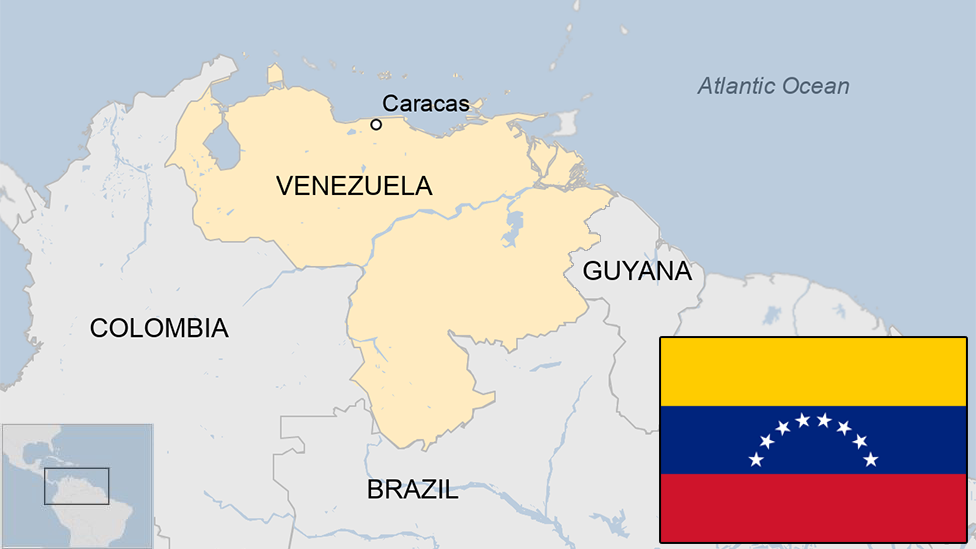Nicolás Maduro: US charges Venezuelan president with 'narco-terrorism'
- Published
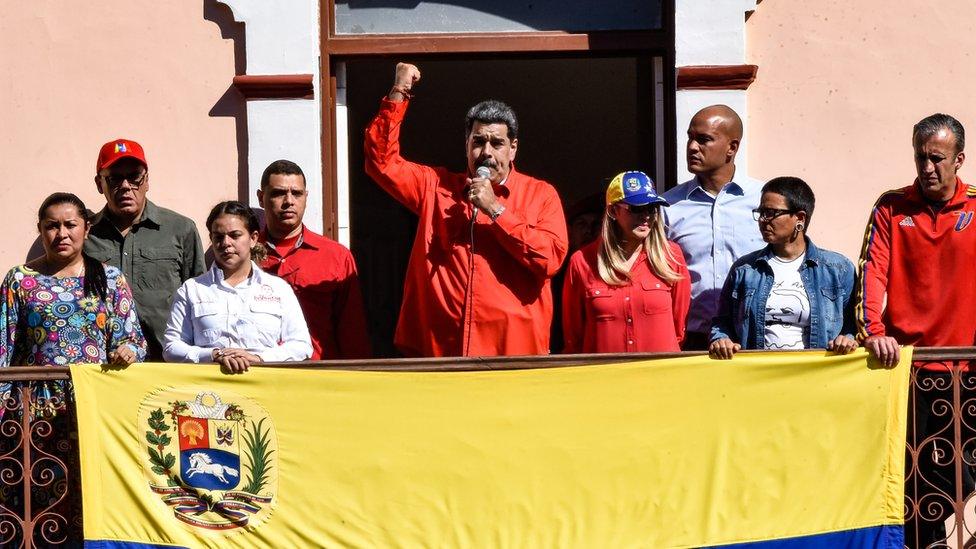
The US has offered a $15m reward for the arrest of President Nicolás Maduro
The US has charged Venezuela's President, Nicolás Maduro, and other senior officials in the country with "narco-terrorism".
It accused them of flooding the US with cocaine and using drugs as a weapon to undermine the health of Americans.
The charges were announced by Attorney General William Barr. A $15m (£12.5m) reward is being offered for information leading to Mr Maduro's arrest.
The US move will further escalate tensions between the two nations.
Washington has long accused the Venezuelan president of leading a corrupt and brutal regime, a charge he has repeatedly rejected.
It backs the opposition leader Juan Guaidó, who declared himself interim president last year.
The new charges represent an escalation in the longstanding US pressure campaign on Mr Maduro, which also includes sweeping sanctions on Venezuela's oil industry.
As well as Mr Maduro, the US charged more than a dozen top Venezuelan officials. These included the country's defence minister and the supreme court's chief justice.
"The Venezuelan people deserve a transparent, responsible, representative government that serves the needs of the people - and that does not.... engage in illicit narcotics trafficking," the US state department said.
What does the US indictment say?
The charges against Mr Maduro and 14 members of his inner circle include narco-terrorism, drug trafficking, money laundering and corruption.
At a news conference announcing the indictment, external on Thursday, Mr Barr accused Mr Maduro of conspiring with a faction of the Colombian Farc rebel group "to flood the United States with cocaine" and "devastate American communities".
"While the Venezuelan people suffer, this cabal... lines their pockets," he added.
Mr Barr said the Colombian rebels had "obtained the support of the Maduro regime, who is allowing them to use Venezuela as a safe haven from which they can continue to conduct their cocaine trafficking".
"Maduro very deliberately deployed cocaine as a weapon... to undermine the health and wellbeing of our nation," US Attorney Geoffrey Berman said.
He accused Mr Maduro and his top aides of running a "narco-terrorism partnership with the Farc for the past 20 years".
The BBC's Will Grant gained access to a Farc camp in Western Colombia
In a separate statement, the State Department said those named in the indictment had "violated the public trust by facilitating shipments of narcotics from Venezuela, including control over planes that leave from a Venezuelan air base".
In response to the US charges, Venezuela's Foreign Minister Jorge Arreaza hit out at what he called "unfounded allegations" and said they showed the "desperation" of the "Washington elite".
"The deep frustration of the White House is a product of the peace that reigns today in Venezuela," he said.
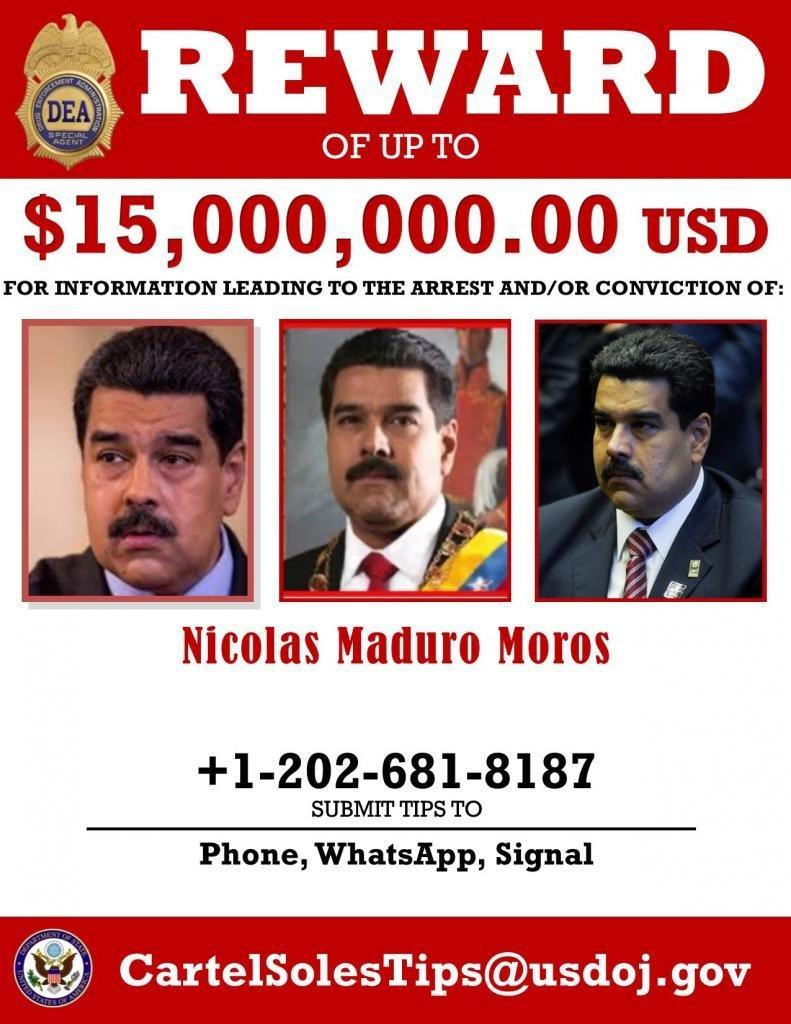
This poster offering a reward for Mr Maduro was released by the US

And in a tweet earlier on Thursday, Mr Maduro accused the US and Colombia of conspiring against Venezuela and causing widespread violence in the country.
He has long accused the US of trying to overthrow him in order to seize control of Venezuela's oil reserves.
What's the background to the Venezuela crisis?
Mr Maduro narrowly won a presidential election in April 2013 after the death of his mentor, President Hugo Chávez.
He was elected to a second term in May 2018 in an election seen as flawed by international observers.
Watch as Juan Guaidó forces his way into Venezuela's parliament and is sworn in by torchlight
Venezuela has experienced economic collapse - inflation was 800,000% last year - and 4.8m people have left the country.
Mr Guaidó has accused President Maduro of being unfit for office. He has won the support of many in the country as well as US and EU leaders.
But Mr Maduro has remained in power and is backed by the army - as well as by Russia, China and Cuba.
- Published18 February 2020
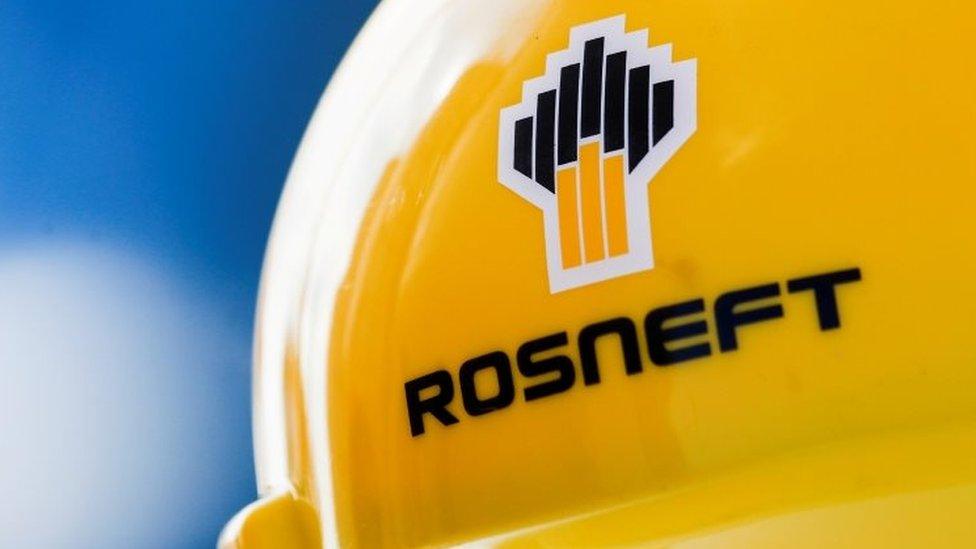
- Published21 August 2019
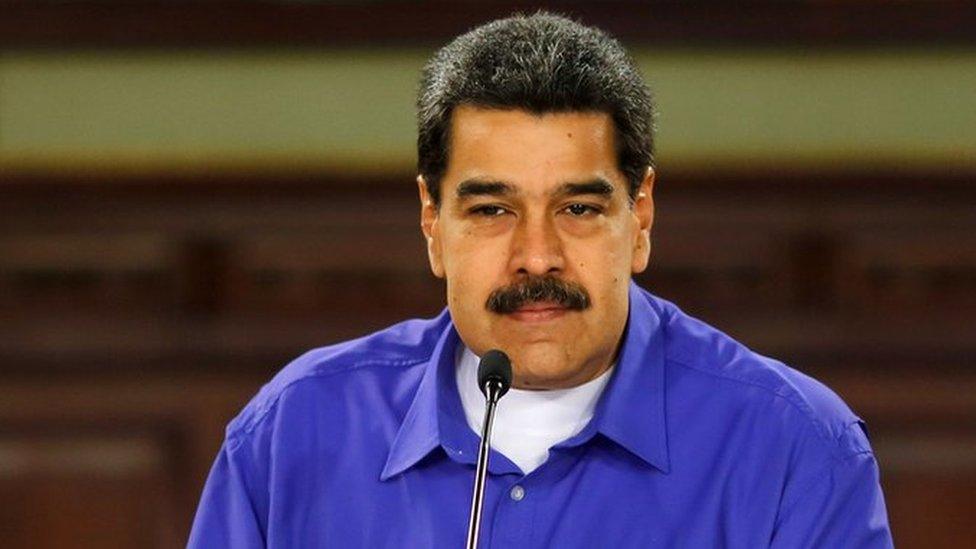
- Published9 September 2024
